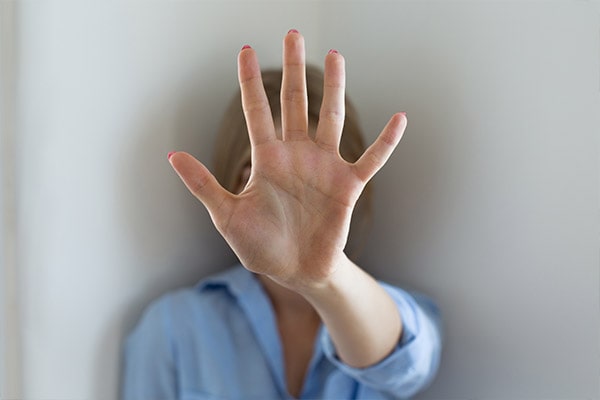What Do I Do If I Suspect Domestic Violence?
If you suspect that a friend or loved one is a victim of domestic violence, there are ways you can help. Know the warning signs of abuse.
- 3 min read
- health & wellness

You may recognize when someone is not acting like his or herself. The person may seem abnormally sad, withdrawn, or angry. But how can you tell if a friend or loved one is the victim of domestic violence?
Domestic violence is a serious, sometimes life-threatening situation
Domestic violence is abuse, either physical or verbal, that is committed by a person’s partner or spouse in their home. Being on the outside looking in can be extremely difficult because though you may suspect something is wrong in your friend or loved one’s life, you may be afraid to intrude. What if you’re wrong? Domestic violence is a serious accusation. What if you’re right? You may have concerns about your own safety.
Some of the Warning Signs of Domestic Violence
- Frequent physical injuries such as bruises, black eyes, cut lips, red or purple marks on the neck, sprained wrists, or broken arms.
- Trying to cover up injuries with heavy makeup, sunglasses, or bulky clothing.
- Withdrawing from normal activities or events with other people.
- Separating from friends or loved ones.
- Acting very secretive about their personal life.
- Exhibiting signs of fear when their partner is around or trying to please their partner excessively when he or she is around.
- Having to ask for permission to go anywhere or complaining that their partner is overly jealous.
- Receiving frequent texts or calls from their partner checking on where they are and constantly reporting in.
- Having restricted access to credit cards, money, or transportation.
- Seeming controlled or manipulated by someone else and showing significant personality changes.
- You witness your friend or loved one’s partner acting in a hypersensitive manner towards them, setting unrealistic expectations on them, or blaming them for all his or her problems.

Talk to your friend or loved one in private
If you notice signs of domestic violence, there are safe ways to intervene. This is not the time to call someone out in person or on social media. It’s understandable that you are upset or angry at the suspected abuser or possibly even at the victim, but a public confrontation will do more harm than good. It’s important to first talk to your friend or loved one about your suspicions in private. Approach the conversation calmly and factually. For example:
“I’m worried about you because you haven’t seemed like yourself recently. I’ve noticed the following things occur that have me concerned that you may potentially be in an abusive relationship. I want to support you and help you.”
Don’t be surprised if this first conversation doesn’t go well. Victims of domestic violence often keep it to themselves because they feel shame, guilt, or fear. Sometimes victims don’t even recognize that they are in an abusive relationship. The most important part of this initial conversation is to let the victim know you care about them, you support them, and you will be there to help them whenever they need it.
If the victim is willing to open-up about the domestic violence situation, JUST LISTEN. Don’t judge the decisions they have made. Don’t judge their partner. Don’t try to offer advice as to how to “fix” their partner or “fix” the situation. Abuse is a complex situation, and both the victim and abuser need professional assistance and counseling.
You can support your friend or loved one by helping them recognize the abuse that has occurred, taking the abuse seriously, acknowledging that the abuse is not his or her fault, and getting the victim to seek professional help. It can be beneficial to have a list of places and/or resources where the victim can get help. These might include:
- National Domestic Violence Hotline–1-800-799-7233
- Local Domestic Violence Hotlines or Organizations, such as the YMCA, YWCA, Battered Women’s Shelter, Women Helping Women, Legal Aid Society or local church resources.
- A local police officer or attorney

Safety
If you suspect someone is in immediate danger, call 911. Do not try to intervene yourself. Domestic violence is a crime. You can support the victim by helping them create a safety plan, which may include things like keeping a spare set of car keys or important paperwork at your house or having a code word they can use to let you know if they are in immediate danger.
The National Domestic Violence Hotline has detailed safety plans to help domestic violence victims in different scenarios. As the friend or loved one assisting the victim, you might also need support or help from an expert. You can call a helpline yourself for professional advice and guidance.